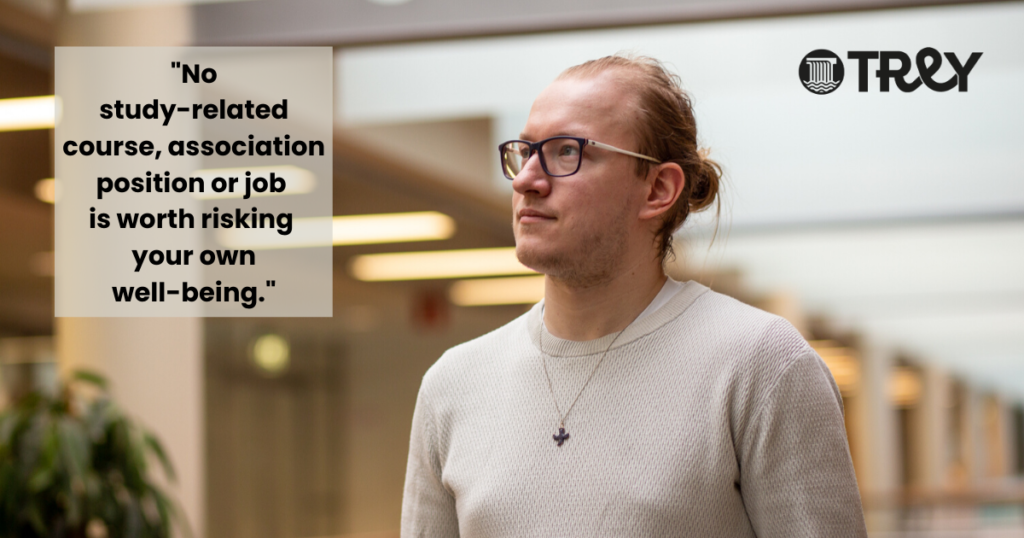That’s right. We’re supposed to wake up after a night’s rest feeling refreshed and ready for the new day. Even before the first cup of coffee. Sounds wild, but it’s true.
The pace of our days is sometimes so frantic that energy in the morning seems like a distant dream: lectures, meetings and all sorts of trivial events fill our calendars from dawn to dusk, that exam looms in the future (I promise I’ll start studying for it tomorrow!) and two different group work meetings should be scheduled for next week. It would be good to get some work done too, so all the money doesn’t go into paying the rent. Oh yeah, and exercise. Oh well, maybe next week.
We live in a constant state of time pressure. The maximum number of months for students’ financial aid has been repeatedly decreased even though the amount of work for degrees – at least in light of study credits – remains the same. Sometimes we feel like we’ll be buried under all the necessary and important stuff – the calendar and the person updating it get close to ripping at the seams and despite all this, it seems impossible to schedule everything. Especially those things that we find fun and important to ourselves and that support our well-being.
Too often, the first thing to suffer in the hectic everyday life is indeed the well-being. The temptation to skip lunch becomes too high when after the lecture, a calendar notification pops up to remind about a group work meeting. And surely we can survive one more night with a little less sleep and study for the exam instead. The weekend is right around the corner and then we’ll have time to recover.
It’s exactly this strange and harmful notion that has taken hold of both us students and the working life. Free days are no longer free days, they’re now days to recharge. When studying for exams, association activities or work take over our weeknights, no room is left for recharging, even though that and sufficient sleep play a key role for things like the ability to store new information in our memory. At the same time, our well-being suffers when we no longer have time to do the things we love and find meaningful.
If you notice that all your free days are spent recharging from the week and you don’t have enough time for sleep and those things outside of work and studies that you hold dear, it’s time to pull the emergency brake. No study-related course, association position or job is worth risking your own well-being.

It’s good to keep in mind the now slightly clichéd saying: time is our most precious resource. And the way we use our resources tells us about our priorities. Sometimes it’s good to stop, take a deep breath and reflect on your life. If you pause now to put things and people in your life in the order or priority, how far down the list is your own well-being?
– Tuomas Kauppinen, TREY board member, an average sleeper and an enthusiastic prioritiser